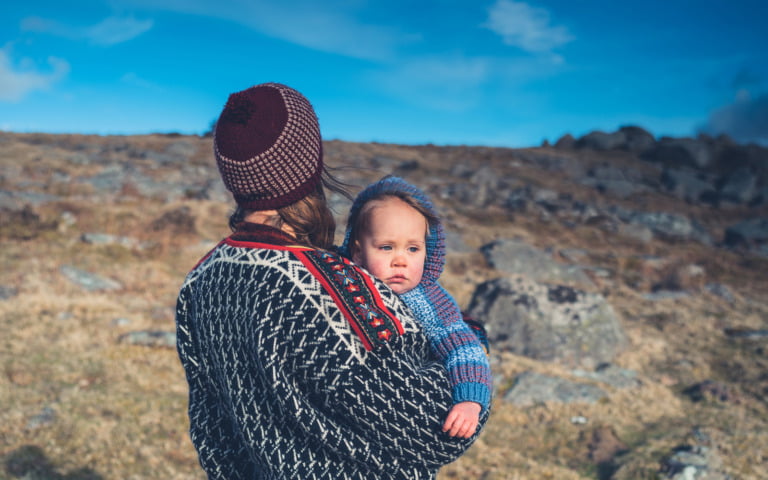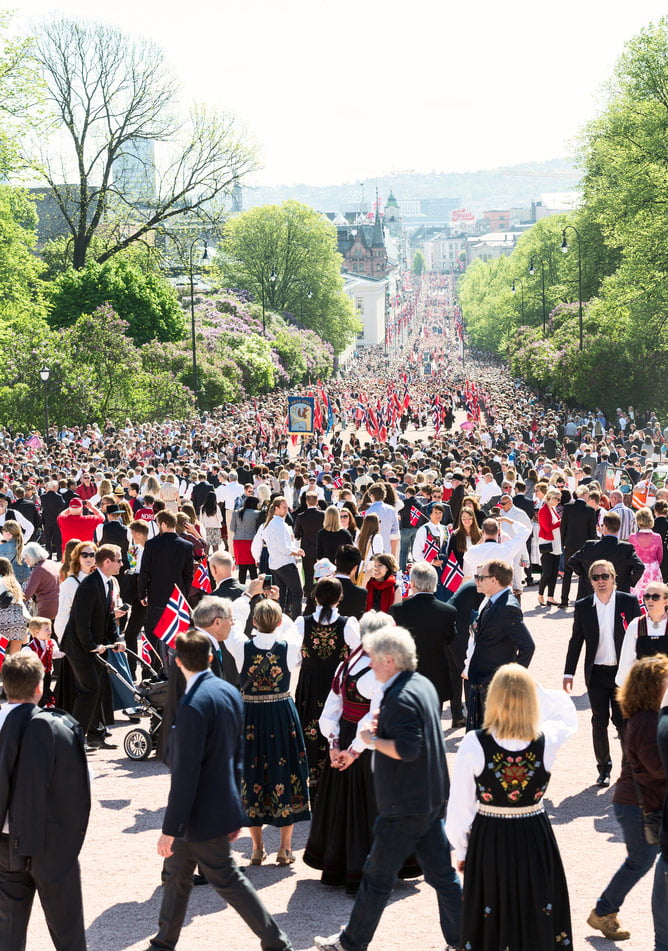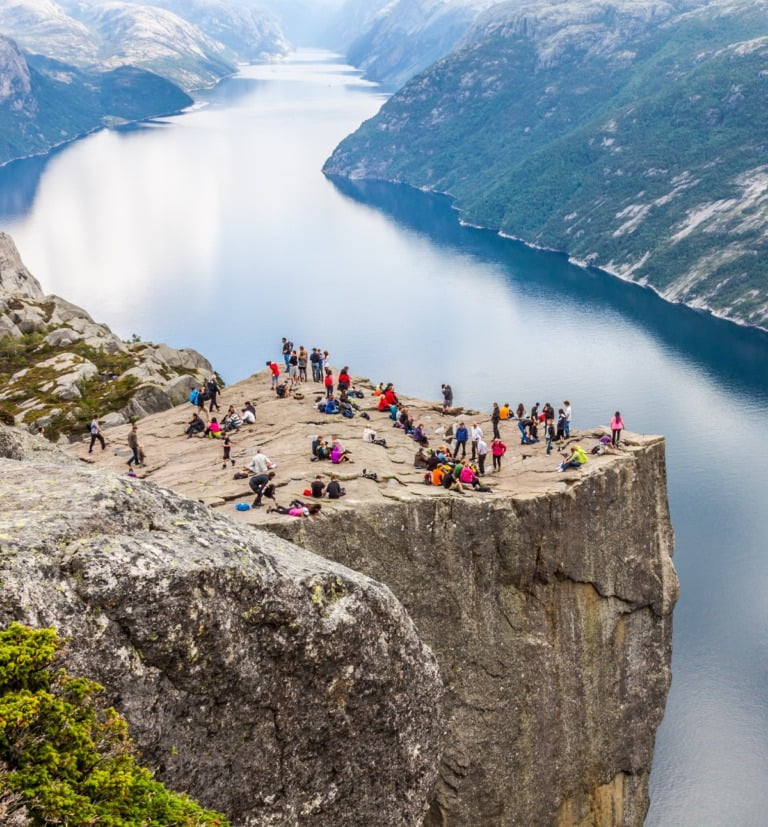
Norway's strict naming laws are more liberal these days, but there are still some names that are not permitted.
Until relatively recently, a law from the 1800s put strict controls on what parents could name their children.
Norway's naming law of 2003 made it easier for Norwegian people to get unusual names approved. But that doesn't that mean that parents are free to pick any name for their child.
The same goes for anyone looking to change their name as an adult. Here's what you need to know about choosing a name in Norway.
Table of Contents
The naming process in Norway
When you submit an application to name a newborn or to change a name, the National Population Register first decides whether a name is acceptable.
Parents must submit their name choice before the child reaches six months old. For name changes, parents must submit the request for children 16 years old or under. However, the child must consent to the change if they are aged 12 or over.

Every year, the Register receives anything from 50 to 100 unusual name requests. About half of these are rejected.
Read more: Popular Baby Names in Norway
What names are banned?
The University of Bergen's Ivar Utne is often used as an adviser in controversial cases. He told Nettavisen that the rule of thumb is that names with negative associations will not be permitted.
Swear words, titles such as King or Princess, names of medicines or diseases, and using first names as surnames and vice-versa are not allowed.
He said that parents often change their mind quickly about unusual naming applications: “Every imaginable name of male and female genitalia has been applied for. Such applications are usually made for fun and are often withdrawn during the process.”
The challenge with foreign names
Perhaps the most challenging part of the process relates to foreign-born parents choosing a baby name. There have been several cases where a perfectly ordinary foreign name is chosen that can mean something different in Norwegian.

There is often an issue with Finnish names Pekka and Kukka. Although in common use in Finland, the words mean something quite different in Norwegian.
Utne explained that in most cases, parents are happy to choose an alternative name once they are notified of the issue.
Read more: Popular Viking Names
Many years ago, a foreign couple applied to call their child Diaree. It was a rare name in their country of origin, but they were unaware that the word meant “Diarrhea” in Norwegian.
“We explained the word's meaning and that choosing this name would not be so wise. They understood and chose another name,” said Utne.
Middle names in Norway
People often seem to feel a bit more freedom when it comes to choosing a second, or middle name. “Right now there are six people who have Batman as their middle name in Norway,” said Utne.

What does the law say?
The 2003 naming law covers first names, surnames and protected surnames. In general, names will not be accepted if there may be a significant inconvenience to the person in question or other strong reasons.
First names must be gender appropriate. Choosing a boy's name for a girl or vice versa isn't allowed, but there are many names allowable for both genders.
Surnames that are used by more than 200 people in Norway are free to be chosen. Many of these are typical Norwegian surnames such as Hansen or Johansen.
Protected surnames: If there are less than 200 users of a surname, the name is considered protected. This means that you must have an association with the name before you can use it. Typically this means the name is the surname of the baby's mother or father.



What’s in a name?
A rose by any other name will smell just as fragrant.
You have to take into consideration whether you would be happy to have a name which others consider ridiculous. I would not like my children to be the butt of jokes… and you?b
My cousins first
name was Snorre in Norway.He moved here to Canada as a young adult and it proved to be a little embarrassing for him!However he went back to marry his girlfriend.They were only back here about 5 months and he was in an accident with a train .He was killed !So he went back home to be buried with his strange name.We never knew if he had decided to change his name here in Canada!
Snorre is a very normal Norwegian name. I was born in Norway and came to the U.S. with my name which caused me to be teased relentlessly in grammar school. I survived. My name is Marit (same as the Crown Princess of Norway) and my school nickname was Marit Parrot Carrot.
Your name is beautiful!!
I consider giving a child a ridiculous name like ABCDE (which has been used) to be child abuse.
As an American, I was shocked to read that you have to apply for a name? It boggled my mind but as I read further I do understand protecting surnames. My mother’s sur names are Peterson and Larson. Yes, I am half Norwegian! My father’s Sur name is French, DeMente. I was called DeMente(d) during High School. Hmmm, but, I am quite proud of all my names.
Tbh here in France “démente” is feminine for “demented” so… Not that anyone should be mocked for something they cannot control, like a family name.
And ‘applying for a name’ is a bit of an exaggeration. You just name your kid whatever you want and when you get their papers done, the officials can demand you change their name if they consider it harmful for the child. There is an infamous story about a woman who wanted to name her son Clitis because of… Clint Eastwood, whose name she thought to actually be Clitis Wood. Others want to name their kid Samsung, Adolf, etc, so I understand why this law exists. Although sometimes it goes overboard too. Like, a friend of mine is named Cloé, and her parents had a hard time registering her as a Cloé because the classical spelling here in France is Chloé with an H, so some dude at the city hall decided he wasn’t gonna accept it. Now that’s just laughable…
Names like Lise Lotte sound strange at first. It is pronounced Liselotta and the nickname is Lotta. Sort of a cool name. My name is Alissa, my Mom was just a Lisa, so always cool with the different Lisa names around the world.
I’m from Colombia and there’s so many children with such a “unique names” or misspelled or even worse misused foreign words as names, Leydy (lady), Usnavy, (yes like, US NAVY) or Geyson (Jason) are just common examples of why I think the idea to pre-approval for a name is appropriate.
I had a Colombian housemate here in Canada. Back home, his siblings included Carlos and Leidi or Leidy….. so I assumed that was a normal name until I just read your comment. Intriguingly, my housemate’s own name is John. (Yes, John. Not Juan!)
My children, are from the Erickson line that turned Ericksen sometimes after WWI and a sailor misspelling it. As immigrants got off the boats saying their name. But my Son is Leif Ericksen, and daughter Lunairia Ericksen. I, have the madian name of Christensen, and am now a Holland. All of Which come from Norse Decent. And with How names are pronounced differently, I can see how Namings can be complicated.
what about the surname Dobyn,Dobbyn?
I read in a book today that the name “Metallica” was approved for a girl in Norway. Wonder whether she’s one of the people whose middle name is “Batman?”
There’s a popular saying, “I don’t care what you call me, just don’t call me late for dinner.”
Perhaps some parents need a little guidance in discerning the difference between “band names” and “banned names.”
In my Norwegian ancestry, within a particular family branch, an additional surname or middle-name is shown, sometimes within “quotation” marks. PAALSKAAS or PAALSKAAR, or something very similar. I’ve been unable to track it as an ancestral name, as such. Any ideas anyone? Thank you.